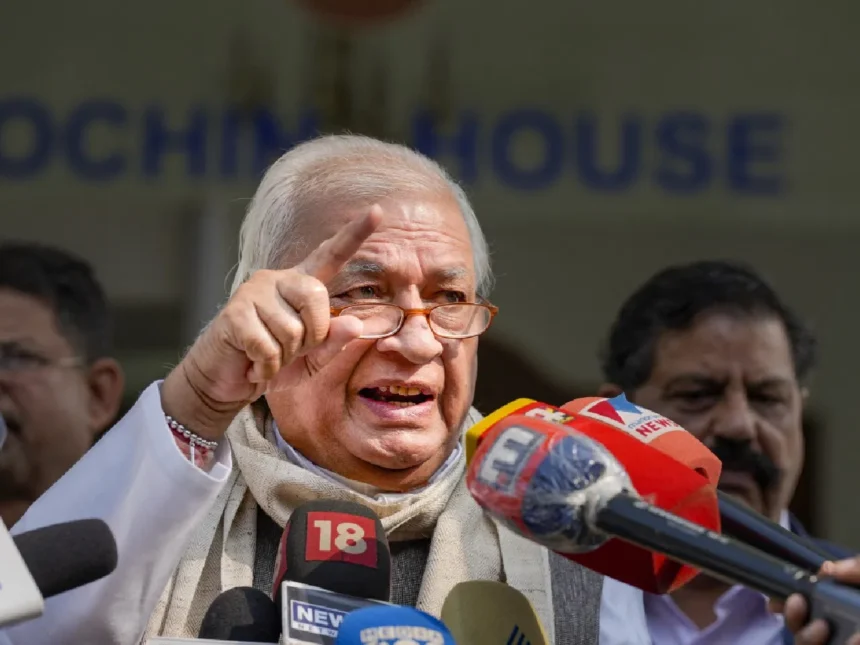In Kerala’s political scene, the Governor became the focus of attention by deciding to protest on the roadside after members of the Students’ Federation of India (SFI) waved black flags.. This incident has not only added a new dimension to the state’s political narrative but has also sparked discussions on the boundaries of expression, dissent, and the dynamics between state authorities and public sentiments.
The background of this incident involves members of the SFI, a prominent student organization, expressing their discontent by waving black flags at the Kerala Governor. In a departure from conventional responses to such demonstrations, the Governor, instead of ignoring or addressing the grievances through official channels, decided to stage a protest at the roadside. This unexpected move has opened a Pandora’s box of questions and considerations.
The tension between the Governor and SFI members brings to light broader issues within Kerala’s political sphere. Student organizations often serve as barometers of public sentiment, and their actions can be indicative of larger dissatisfaction or disagreements with the ruling authorities. This incident, therefore, provides an opportunity to delve into the root causes of the tension and analyze the state of political discourse within Kerala.
The involvement of the Students’ Federation of India also highlights the role of youth organizations in shaping political narratives. These organizations not only advocate for student rights but also play a significant part in voicing concerns on broader political issues. Waving black flags as a form of protest is not just an isolated act but a symbolic expression of dissent that deserves attention and analysis within the broader context of youth participation in politics.
About Governor’s Decision
The implications of the Governor’s decision to stage a roadside protest are multifaceted. On one hand, it challenges the traditional norms of how state authorities respond to dissenting voices, blurring the lines between formality and informality in governance. On the other hand, it opens up discussions on the right to express dissatisfaction and the freedom of citizens to voice their concerns, even when directed towards the highest state official.
This incident prompts a reflection on the state of freedom of expression and dissent in Kerala. Waving black flags as a form of protest is constitutionally protected, reflecting the democratic ethos of the nation. However, the response of the Governor, engaging in a roadside protest, adds a layer of complexity to the discourse. It forces a reexamination of the boundaries within which public dissent is accepted and how authorities choose to respond to such expressions.
The need for effective communication and conflict resolution within the state’s leadership is evident in the Governor’s decision to stage a protest. This unconventional response implies a breakdown in the standard channels of communication or a lack of trust in the formal mechanisms for addressing grievances. It calls attention to the necessity of robust dialogue and conflict resolution mechanisms to prevent such escalations in the future.
In the aftermath of this incident, there is a clear need for open dialogue between political leaders, youth organizations, and the public. Effective communication channels and conflict resolution mechanisms should be established to address underlying issues and prevent escalations that could impact the stability and harmony within the state. The incident serves as a wake-up call for a renewed commitment to democratic values and open discourse.
What happened with the Kerala Governor protesting on the roadside and the SFI members waving black flags is not just a one-time thing. It shows how things are changing in Kerala’s politics. It calls for a deeper examination of the factors contributing to such tensions and a reevaluation of the mechanisms in place for addressing dissent. As Kerala navigates these challenges, it becomes imperative to foster an environment where open communication, respect for dissenting voices, and effective conflict resolution are prioritized.




